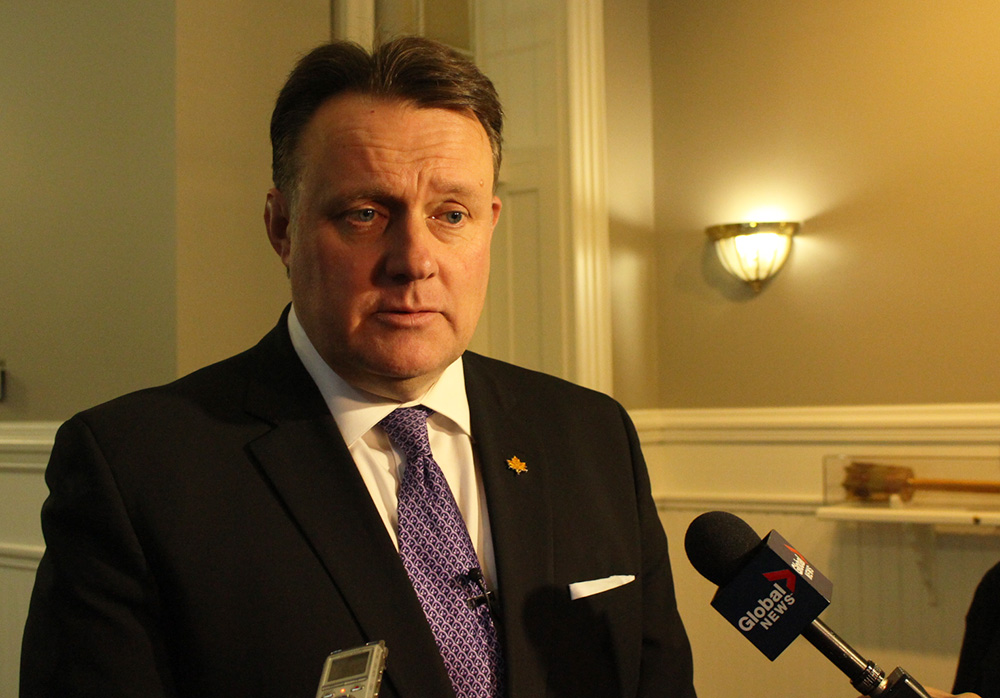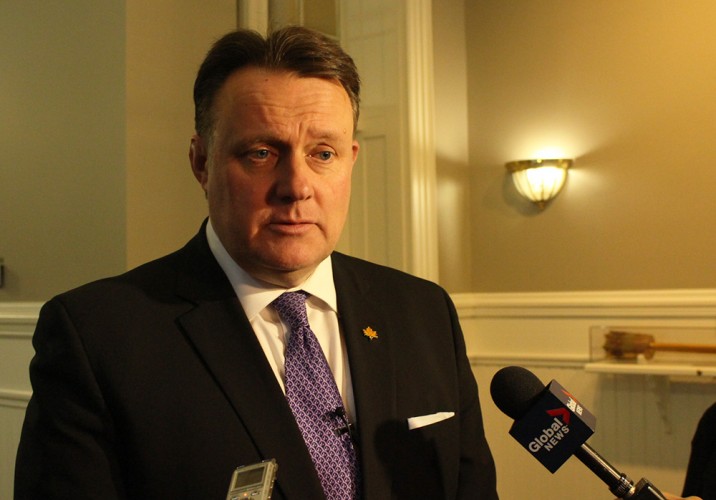Refugees
Halifax regional council approves refugee support plan
The city's plan aims to create support for increased number of refugees to the province and protect private sponsors

caption
Halifax Mayor Mike Savage (pictured) will continue to work with Premier Stephen McNeil in reducing Nova Scotia's red tape.
caption
Mayor Mike Savage answers questions about Halifax’s plan to support refugees outside City Council on Tuesday.On the same day the federal government announced its five-phase plan to bring 25,000 Syrian refugees into Canada, Halifax regional council pledged to support an increased number of refugees into the province.
The federal government will bring 10,000 refugees to Canada by the end of the year, according to a Tuesday press release from Citizenship and Immigration Canada. The rest are expected to arrive by the end of Feb. 2016.
“Canadians can and must do more to help Syrian refugees who are desperately seeking safety,” Prime Minister Justin Trudeau said in a statement. “This is about showing leadership and doing what is right as Canadians and we are doing the right thing by immediately helping …Syrian refugees. Canada will make a difference, and we encourage all Canadians to do what they can to help.”
Council’s plan calls for ongoing talks with the federal government to support refugees coming to Halifax and to make municipal contributions to an assurance fund to protect Sponsorship Agreement Holders — private citizens who sponsor refugees– against financial risk.
Councillor Waye Mason called the motion “the most important thing the council does” during the discussion at Halifax City Hall.
“How we greet and embrace [the refugees] reflect how we want to be seen,” he said.
Councillor Bill Karsten said refugees will be beneficial for Nova Scotia and encouraged council to go further.
“I’m sure these people will be welcomed into our communities,” he said. “I’m sure…they’ll contribute the way immigrants and refugees have contributed to our society in the past. I encourage council to support this and to look how we can collectively help in other ways.”
The exact number of refugees Nova Scotia would receive is unknown, but will be proportional to the population said Maggie MacDonald, the city’s managing director of government relations and external affairs.
Dispute over uncertainty in plan
Some councillors questioned the numbers in the plan and the assurance fund.
Councillor Stephen Adams said he supports the plan, but doesn’t want taxpayer money to go where there is uncertainty regarding the number of refugees.
“I support the other two [mandates], but not the third one,” he said. “We shouldn’t contribute tax dollars that are earmarked for certain specific things.”
Adams and Councillor David Hendsbee voted no on the assurance fund, but supported the other mandates.
Hendsbee said he voted no because he felt the details on the assurance fund were unclear.
“To me it sounds more like a social assistance fund and that is something outside [the] municipal mandate,” he said. “Social service has been tabled by the province over a decade ago. I felt any additional funding without clarity was not appropriate at this time.”
Halifax Mayor Mike Savage said money is not an issue in helping refugees.
“There may be some financial ramifications,” he said. “But what I’m seeing is that people want to help. It would be impossible to say what the cost is. Some of it I don’t think is actually costly at all. It’s just a matter of moving resources around and opening our arms to people who need help.”
The federal government’s plan has five phases of bringing refugees to Canada: identifying Syrian refugees, processing them overseas, transporting them to Canada, welcoming them, and settling the refugees in communities.
Councillor Barry Dalrymple said people are the most valuable resource in Nova Scotia’s humanitarian effort.
“It’s great all three levels of government are supportive and looking to do the best they can,” he said. “But at the end of the day, it’s going to be our communities and our people that make the difference.”

